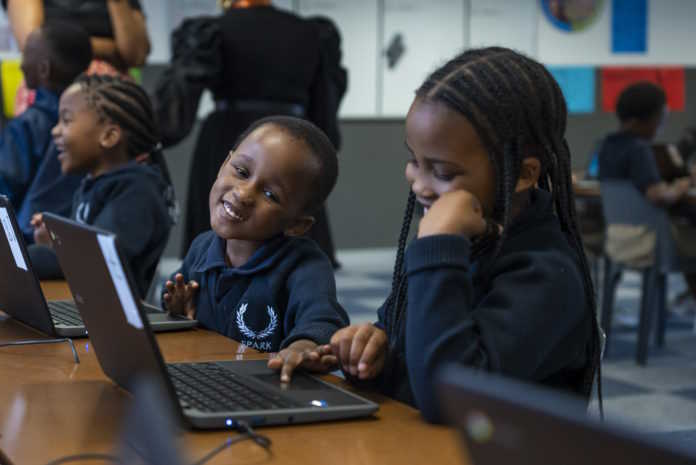Sending your little one off to formal school is exciting, but making sure the school experience is the right fit, and one of joy and learning can be a challenge.
Grade R is when a child becomes a scholar. It is the start of the foundation phase of schooling and is crucial for a child’s preparation and development. The early years of play and learning changes to one of structured learning and they need to get used to a formal curriculum for the first time.
So how do you go about choosing the right school for your child? Nkazimulo Zitha, Head of School Achievement at SPARK Schools, says finding the right school fit requires understanding the learning needs of your child as well as your basic requirements. After making this list, do a thorough research of the different schools which meet your criteria.
Curriculum and teachers
“There are several considerations that parents should make when applying for the foundation phase. These include a good school curriculum with a solid academic foundation, social-emotional learning, and behaviour management,” adds Zitha.
SPARK Bedfordview Principal, Hayley Tungela, says that besides the curriculum, the role of teachers is equally crucial. Teachers play an integral role in ensuring that Grade R and Grade 1 students succeed and thrive throughout their primary school years.
“Teachers should be able to teach a skill in a manner that supports the students who are learning the skill for the first time and stretch the students who can already master that particular skill. Stimulating enthusiasm and boosting self-esteem is fundamental in their schooling life,” says Tungela.
Social-emotional skills
The school leader adds that when applying for a school, most parents think about the curriculum, sports, and other activities on offer, but they tend to overlook the importance of social-emotional learning as an essential skill.
“Traditionally known as ‘soft skills’ but are actually vital because they teach children self-management, self-awareness, accountability, decision-making, and empathy for others which helps them build better relationships with their peers and adults. These skills also help children handle stressful situations and challenges,” says Tungela.
Technology adaption
Another important factor to consider, says the school leader, is the skills children need for the new world. And one of the most important is whether the school you choose uses and is comfortable with technology.
“Technology now plays a significant role in education, primarily enhancing education and learning experiences. To make sure our children are up to date with modern technology we need to make sure they know how to use it, are comfortable with it and can apply it in later life.
“At SPARK Schools, we offer a blended learning model. Our scholars utilise technology in Grade R. Our programs, including computer-based educational games like ST Math and Reading Eggs, allow our students to learn through discovery and at the same time mastering technology,” adds Tungela.
Culture, positivity and fun
A positive school environment has a lasting impact on children. For this reason, parents must consider the overall school culture.
The SPARK Bedforview leader believes, “A positive school culture will help build a child’s confidence. The best way to learn about the school culture is by asking other parents. Existing parents are a great source of information because they have experience with the school.”
Zitha stresses that academic performance is not the only benchmark of a good school, it’s the unseen and underlying philosophy that is equally important.
The SPARK leader adds that “Children should be able to perform academically but also function as useful and contributing members of our society. Schools that emphasise kindness, service, empathy, and achievement help nurture future leaders.”












